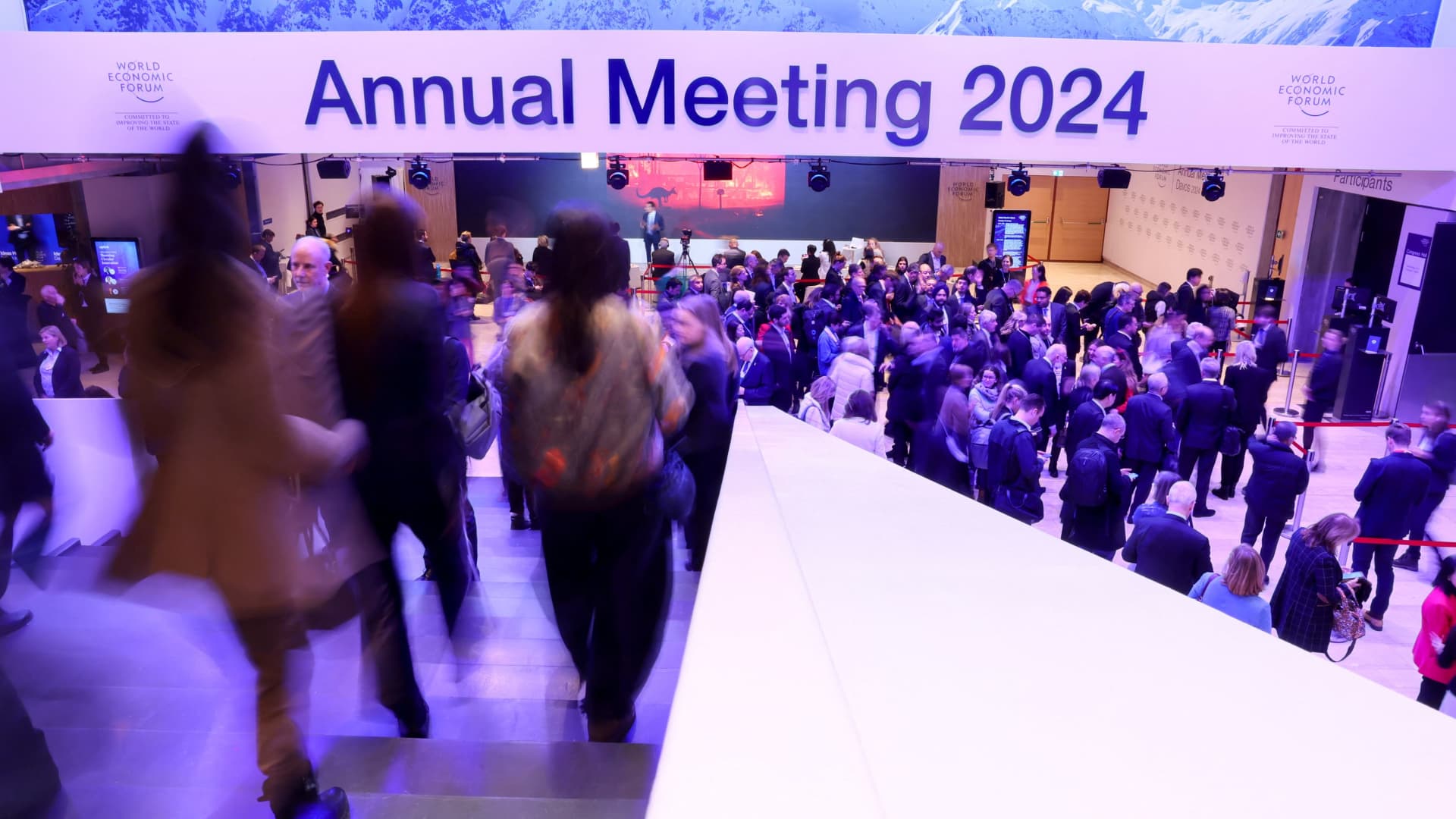People attend the 54th annual meeting of the World Economic Forum, in Davos, Switzerland, January 18, 2024.
Denis Balibouse | Reuters
This report is from today’s CNBC Daily Open, our new, international markets newsletter. CNBC Daily Open brings investors up to speed on everything they need to know, no matter where they are. Like what you see? You can subscribe here.
What you need to know today
Dow snaps 3 days of declines
The blue-chip Dow Jones Industrial Average rose Thursday after falling for three straight days, with the other main indexes also ending higher. Wall Street’s indexes were boosted by a 3.3% rise in shares of Apple after Bank of America upgraded the company to a buy rating. In Asia, chip companies lifted Taiwan stocks, with heavyweight Taiwan Semiconductor Manufacturing Corp surging as much as 6.6%.
Disney new activist target
Activist investor Nelson Peltz has his eyes set on Disney. Peltz’s Trian Fund Management along with former Disney chief financial officer Jay Rasulo plan on launching a proxy fight to gain seats on Disney’s board. Peltz said he and Rasulo will be like “Batman and Robin” in an interview with CNBC, if they get elected.
India makes ripples at Davos
India is turning up the charm and courting investors at the World Economic Forum in Davos, Switzerland. The world’s most populous country touted three key elements – its growth story, digital infrastructure, and burgeoning startup ecosystem. Big Indian technology firms at the forum also showcased their use of artificial intelligence.
India’s wealthy, China’s shrinking working population
India’s affluent population is set to nearly double and drive consumption growth in the world’s fifth-largest economy. In China, official data showed the working age population was shrinking as a share of the total number of people in the country.
[PRO] AllianceBernstein pick top Asian stocks
The stocks are “highly ranked on a quantitative basis and our companies where our Bernstein analysts have a strong positive view,” the Wall Street bank wrote in a note. AllianceBernstein picked Asia-Pacific stock and sectors that are “particularly attractive right now.”
The bottom line
The week is wrapping up on a brighter note as U.S. markets snap losing streaks, while across the Atlantic headlines from Davos grab attention.
The Dow Jones Industrial Average closed 0.54% higher, ending three-straight days of declines, while the tech-heavy Nasdaq Composite jumped 1.35%. The benchmark S&P 500 ended 0.88% higher and about 0.33% away from its closing record.
Wall Street was boosted by Apple after Bank of America upgraded the stock. Semiconductors gained after the world’s largest chipmaker Taiwan Semiconductor Manufacturing Co. posted better than expected fourth-quarter results. U.S.-listed shares of TSMC jumped 9.8%.
TSMC’s Taiwan-listed stocks jumped more than 6% in Asia trading hours.
At Davos, India grabbed a few eyeballs as the world’s most populous country touted its growing economic strength.
“India’s presence is certainly sizable — it has some of the most sought-after spots on the main promenade for tech companies,” Ravi Agrawal, editor-in-chief of Foreign Policy and former CNN India bureau chief, told CNBC. “As China’s economy slows down, India’s relatively rapid growth stands out as a clear opportunity for investors in Davos looking for bright spots.”
Growing disposable income among Indians is also seen as a significant driver of the country’s consumption story. A Goldman Sachs report last week said around 100 million people in the world’s most populous country will become “affluent” — with annual income exceeding $10,000 — by 2027.
So far, about 60 million people in India’s economy earn more than $10,000.
The subject of Donald Trump also gained traction at Davos. The emerging theme was that top U.S. executives had no problem with the idea of Trump returning for a second term, while foreign chief executives feared such a scenario. Those worries mostly stemmed from Trump’s hardline policies including immigration and increased risk of potential conflicts.
Sam Altman, OpenAI founder and CEO, said artificial intelligence as a sector and the United States as a country are both “going to be fine” regardless of who wins the U.S. presidential election.







